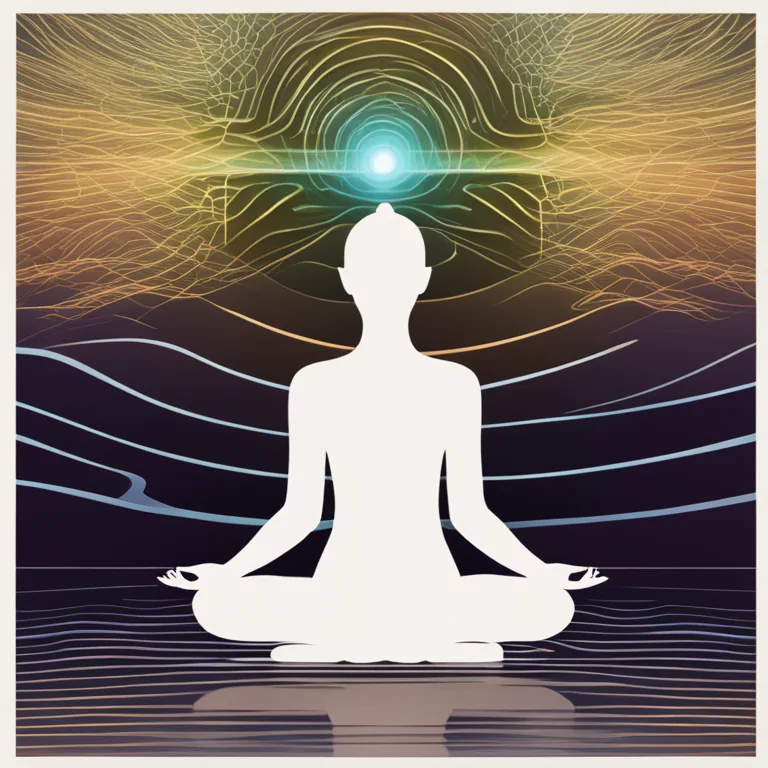
Meditation Techniques for OCD Relief
Explore effective meditation methods to ease symptoms of Obsessive-Compulsive Disorder (OCD).
article by Hina Kurosawa
Introduction to Meditation and OCD
Meditation has long been heralded for its calming effects on the mind and body. For those living with Obsessive-Compulsive Disorder (OCD), meditation can play a vital role in managing the frequent, intense, and uncontrollable thoughts and behaviors associated with the condition. As we advance into the year 2024, meditation remains a recommended complementary practice for improving mental health and well-being, empowering individuals to find a sense of peace amidst their struggles.

Mindfulness Meditation for Present Focus
Mindfulness is a meditation practice that encourages individuals to bring their attention to the present moment without judgment. For those with OCD, mindfulness helps in recognizing obsessive thoughts without engaging with them emotionally or behaviorally. By consistently practicing mindfulness, individuals can train their brain to stay focused on the present, which can be particularly beneficial when intrusive thoughts demand immediate attention.

Body Scan Meditation for Tension Release
Body scan meditation involves mentally sweeping through various parts of the body to identify and release tension. It can be especially effective for OCD sufferers, who often experience physical stress symptoms alongside their mental health challenges. By dedicating time to relax and observe the body without acting on compulsion, a person can develop greater awareness of physical sensations and learn to cope with discomfort without resorting to rituals.

Mantra Meditation to Redirect Thoughts
Repeating a mantra, a word, or a phrase, can serve as an auditory anchor, providing a refuge from the onslaught of obsessive thoughts. By focusing on a positive or neutral mantra, OCD patients can redirect their thought patterns away from compulsive behaviors. With time, mantra meditation can help to break the cycle of obsessions and compulsions by offering a mental respite.

Breathing Exercises for Calm
Deep breathing exercises are a cornerstone of many meditation practices. They serve as a powerful tool for those with OCD by invoking the body's natural relaxation response. Techniques such as the 4-7-8 method or diaphragmatic breathing can help alleviate anxiety's physical manifestations, providing a sense of calm when obsessions or compulsions feel overwhelming.
Visualization for Mental Rehearsal
Visualization or guided imagery can be particularly beneficial for OCD. This technique allows individuals to mentally rehearse staying calm and resisting compulsions in various scenarios. Not only can this fortify resilience in triggering situations, but it also empowers patients with OCD to visualize success in overcoming their challenges, thereby reinforcing positive mental pathways.
Progressive Relaxation for Ritual Prevention
Progressive muscle relaxation involves tensing and then relaxing different muscle groups. This practice can be adapted for individuals with OCD by methodically working through muscle groups without engaging in compulsive rituals. The act of tightening and releasing muscles can serve as a physical metaphor for letting go of compulsive urges, encouraging relaxation and self-control.
Zen Meditation for Simplifying Thoughts
Zen or Zazen meditation emphasizes simplicity and the ability to let thoughts pass without attaching to them. This form of meditation can be particularly appealing to those with OCD, as it espouses a non-reactive mind and cultivates a quiet state that can be profoundly soothing for a mind crowded with compulsions.
Integrating Meditation into Daily Life
The benefits of meditation are most pronounced with regular practice. For those with OCD, incorporating these techniques into daily life can lead to significant improvements in managing symptoms. It's advisable to start with short sessions, gradually increasing the duration as comfort with the practice grows. Furthermore, mindfulness and meditation apps that have burgeoned by 2024 can provide guided sessions specifically tailored for OCD sufferers, making the practices more accessible than ever.
Published: 12/20/2023
Modified: 12/20/2023
More predictions
Come back here soon to learn more about yourself and your future


Unlocking Meditation Techniques
Discover various meditation techniques to enhance mindfulness and spiritual well-being. This article introduces a range of practices suitable for both beginners and seasoned practitioners.


Calming The Mind With Meditation
Discover effective meditation techniques to ease your mind and promote serenity in your daily life.


Soothing Meditation Practices for Serenity
Discover effective meditation techniques to cultivate a tranquil mind and embrace inner peace in our fast-paced world.